Warning: Spoilers ahead for Cyrano.
Cyrano, the latest film adaptation of the 1897 French play Cyrano de Bergerac by Edmond Rostand, made some big changes to the source material. Directed by Joe Wright from a screenplay by Erica Schmidt, Cyrano stars Game of Thrones’ Peter Dinklage as the titular character. Although it’s set in the era in which it was written, Cyrano the movie took some creative liberties.
Cyrano de Bergerac — who is a clever wordsmith, poet, and swordsman — is deeply in love with Roxanne (Haley Bennett). However, just as he’s about to finally admit his long-held feelings for her, she reveals she’s fallen in love with Christian (Kelvin Harrison Jr.), a soldier she meets while attending a local play. Learning he’s in the same regiment as Cyrano, Roxanne asks her friend to ensure Christian’s safety. Believing Roxanne will never return his affections, Cyrano offers to write letters to her on behalf of Christian, who has also fallen in love with her.
While the period piece remains rather faithful to the source material for the most part, Cyrano does change quite a few key moments in the story, many of which help to distinguish it from the original play. Here are the biggest changes Cyrano made from the story.
The Cyrano Movie Is A Musical Adaptation
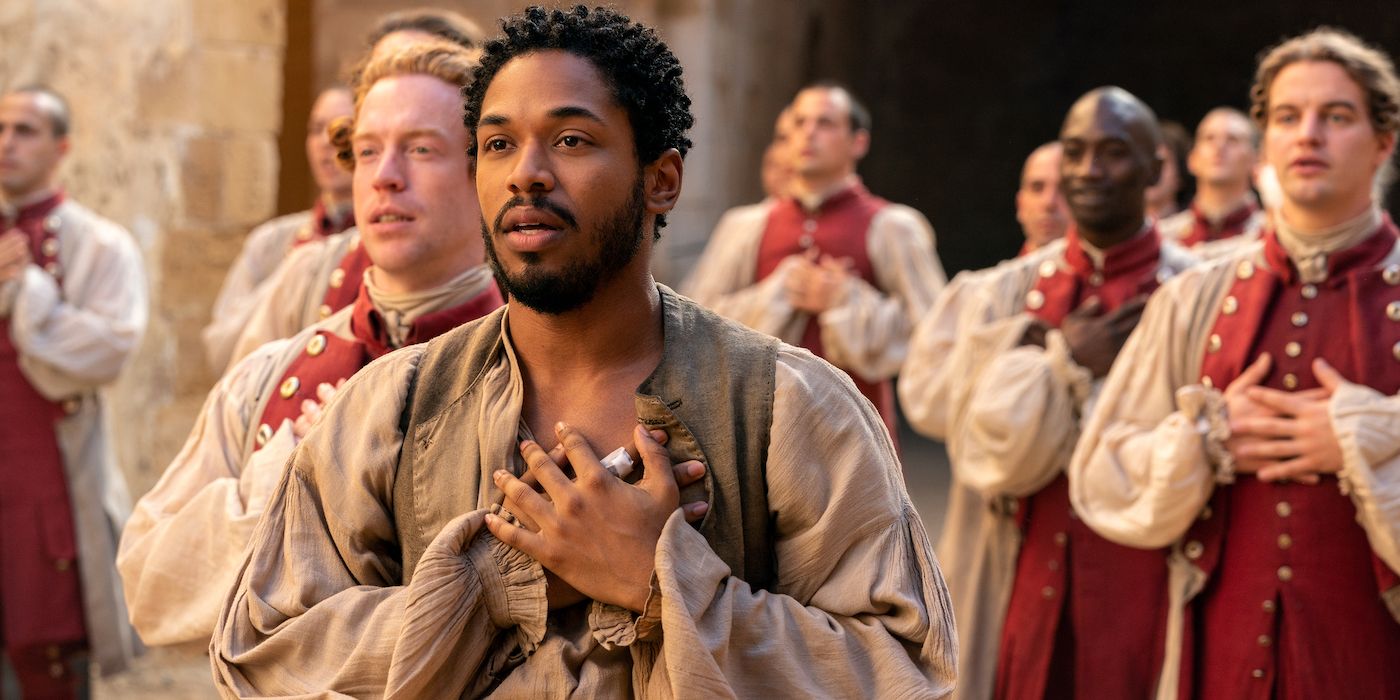
Wright’s Cyrano is the first time the play has been turned into a musical film. The adaptation has a plethora of songs — with music by Aaron and Bryan Dessner, lyrics by Matt Berninger and Carin Besser — that work to advance the storyline, complementing the dialogue and Cyrano’s own lyrical-sounding letters to Roxanne. With over ten songs, Cyrano is more based on the musical stage adaptation by Erica Schmidt (who also wrote the screenplay for the film), which originally starred Dinklage and Bennett in their respective roles. Prior to the latest iteration of Cyrano, Rostand’s source material was adapted to the big screen in various ways — be it as a modern take on the story, such as the 1987 comedy Roxanne, Netflix’s Sierra Burgess is a Loser, or as parts of TV show episodes like The Brady Bunch. The music in Cyrano specifically amplifies the famous balcony scene and even makes the battle scene sadder.
Cyrano Changed The Reason For His Insecurity
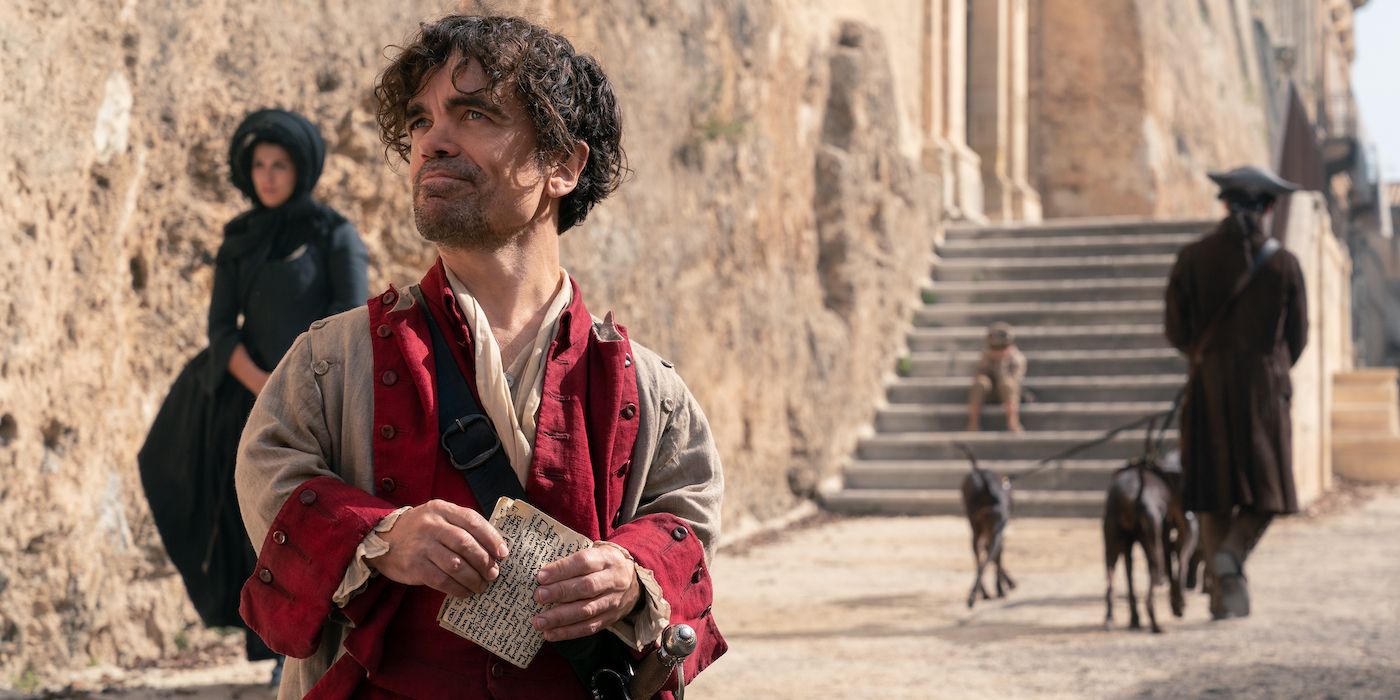
In the original play, Cyrano had an incredibly large nose that caused him to be insecure about being loved; it was one of his most defining features. In the film, Cyrano has no such problem. Rather, Dinklage’s character is insecure about his height and for being seen as less than by society for his physical appearance, as well as his social standing. He’s terrified of Roxanne’s rejection, believing she could never love him for who he is despite having been friends since childhood (they’re cousins in the original play).
Screenwriter Schmidt says she wanted to change Cyrano’s insecurity from the original play because it was always good-looking actors who would wear a prosthetic nose for the role and get to take it off afterwards. They weren’t being affected by Cyrano’s large nose when they were no longer playing him. Speaking with The Hollywood Reporter, Schmidt “wondered what it would be like if you got rid of that, if what about himself made him unlovable [wasn’t so obvious].” In addition to the change in the character’s main insecurity, he also has an issue with regards to his pride that stands in his way quite often.
Roxanne Never Goes To The War Front In Cyrano
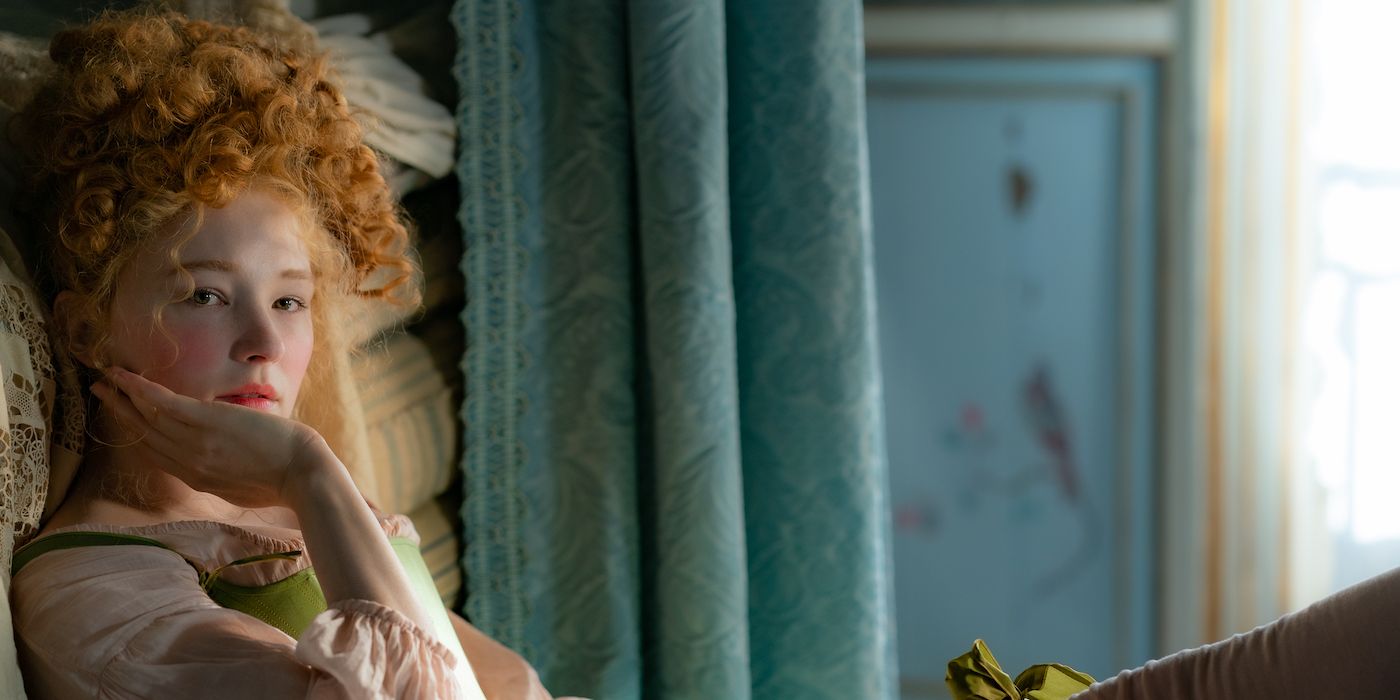
In the original play, Roxanne manages to cross over to enemy lines to see Christian, who was dispatched to the front alongside Cyrano to fight in battle. She also witnesses Christian being shot, which devastates and shocks her. However, in the musical adaptation of Cyrano, Roxanne stays behind when Christian and Cyrano head to war and she doesn’t get to see Christian again because he dies. This change makes more sense in the film considering Roxanne is still reeling from the fact that de Guiche, who she was set to marry, has just called Christian to war immediately following their wedding. Her sudden arrival at the war front and being allowed to see the troops wouldn’t have added anything to the story. Not being there actually makes the loss of Christian and what happens afterward all the more emotionally powerful.
Cyrano’s Musical Adaptation Doesn’t Have A 15-Year Time Jump
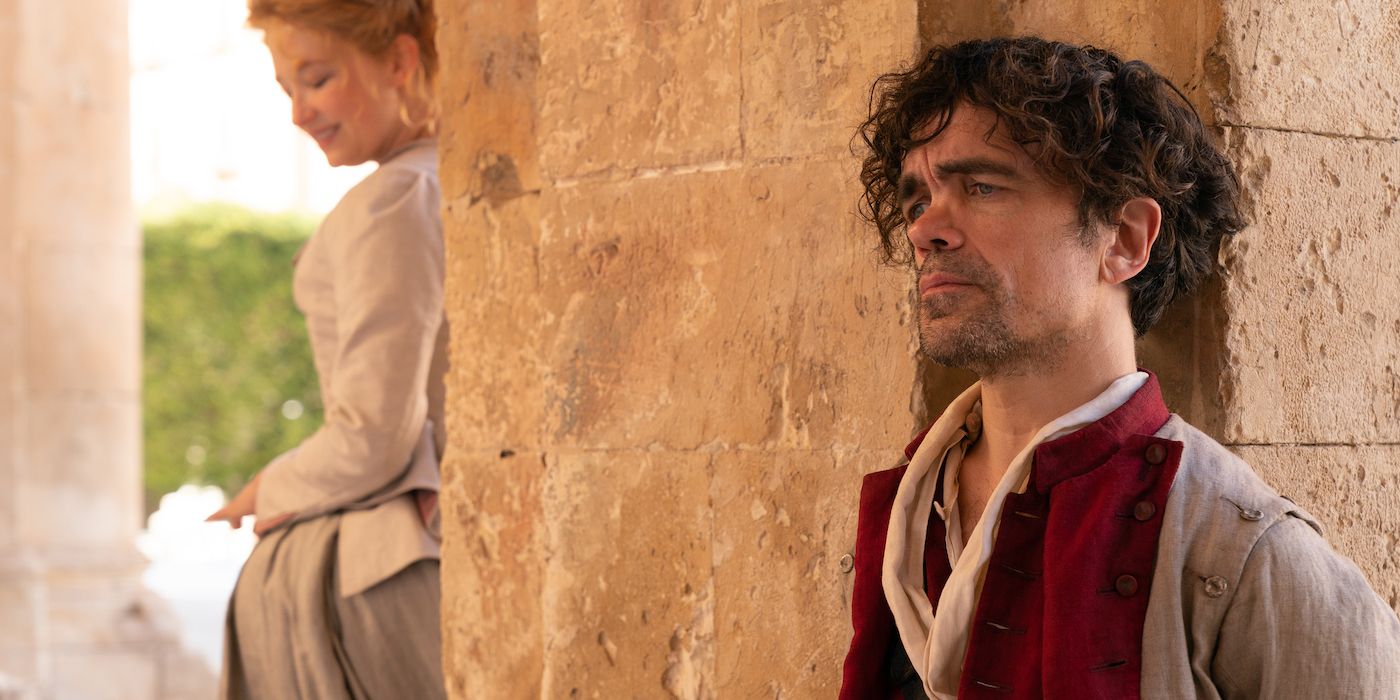
Following Christian’s death and Cyrano’s decision to break his friend’s vow to tell Roxanne the truth, Rostand’s story jumps ahead 15 years. Roxanne is now living in a convent and Cyrano visits her once a week to give her news of the outside world. While Roxanne does live in a convent after Christian’s death, which she still mourns, Cyrano’s musical adaptation alters it so that the events take place only two to three years following the battle. Cyrano still visits Roxanne and refuses to tell her the truth, but the much smaller gap in time makes the ending a bit easier to digest as it would have been quite egregious to think Cyrano kept the secret from Roxanne for 15 years. With the ending taking place after only a couple of years, Roxanne’s life also seems less tragic, with the possibility of her being able to find another love later on more likely than the original finale.
Cyrano’s Last Words Before Dying Are Different In Musical Film
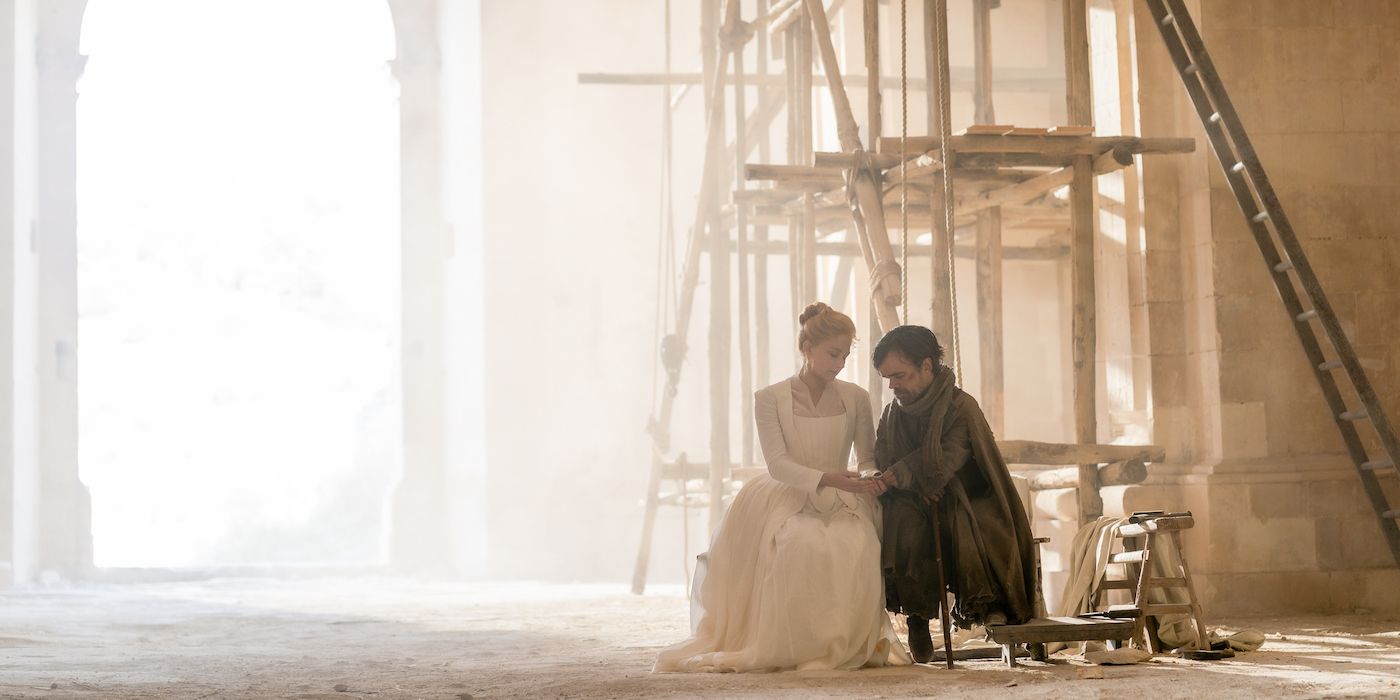
When Cyrano dies in Rostand’s play, he famously says the final thing that will go with him when he’s gone is his panache. In the musical, however, Roxanne realizes he’s the one who wrote the letters and proceeds to tell Cyrano what he’s always wanted to hear — that she loves him. They share a kiss, but it isn’t his panache that is referenced in his dying breath. Rather, Cyrano says he loved his pride more than Roxanne in the end.
It’s a poignant, honest moment that essentially defines Cyrano’s behavior and choices in keeping the truth of his feelings for Roxanne hidden after all these years. It shows that it wasn’t just his insecurities that prevented him from revealing his emotions, but his sense of ego. Yet another change in the final scene is that Cyrano dies in Roxanne’s arms, with no one else present (unlike the play that includes other characters). This gives their final goodbyes and revelations to each other at the end of Cyrano an additional touch of intimacy and tragedy, distinguishing it further from the source material.




